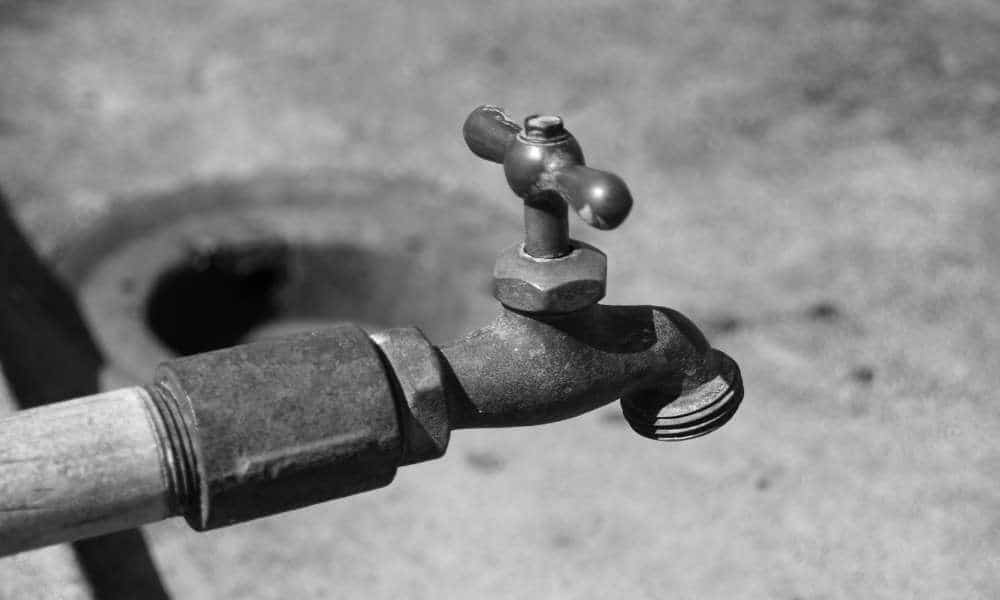Wellness Massage: Benefits, Types, and What to Expect
Understanding wellness massage
A wellness massage is a therapeutic approach to bodywork that aim to improve overall health and comfortably being instead than plainly address specific pain points. Unlike strictly medical massages that target injury recovery, wellness message take a holistic approach to health maintenance, stress reduction, and prevention of future problems.
Wellness massage incorporate various techniques design to relax muscles, improve circulation, enhance immune function, and promote mental clarity. The practice have roots in ancient healing traditions from around the world but has evolved to incorporate modern understanding of physiology and psychology.
Key benefits of wellness massage
Physical benefits
Wellness massage offer numerous physical advantages that contribute to overall health:

Source: sallieborrink.com
-
Muscle tension relief
Massage techniques help release chronic tension patterns in muscles, improve flexibility and range of motion. -
Improved circulation
The manipulation of soft tissues enhance blood flow throughout the body, deliver oxygen and nutrients more expeditiously while remove metabolic waste. -
Enhanced immune function
Regular massage has been show to boost white blood cell counts and strengthen natural defense mechanisms. -
Better sleep quality
By reduce stress hormones and promote relaxation, wellness massage can improve sleep patterns and duration. -
Pain reduction
Massage trigger the release of endorphins, the body’s natural painkillers, while to address sources of discomfort.
Mental and emotional benefits
The benefits of wellness massage extend advantageously beyond physical improvement:
-
Stress reduction
Massage lowers cortisol levels while increase serotonin and dopamine, create a profound relaxation response. -
Anxiety relief
Regular sessions can reduce symptoms of anxiety and help manage panic disorders. -
Improved mood
The combination of touch therapy and relaxation promote positive emotional states. -
Mental clarity
By calm the nervous system, massage can enhance focus and cognitive function. -
Mindfulness practice
Massage encourage presence and body awareness, similar to meditation benefits.
Popular types of wellness massage
Swedish massage
Swedish massage serve as the foundation for many western massage styles. This technique employ farseeing, flow strokes combine with kneading, friction, and gentle stretching. The pressure typically ranges from light to medium, make it accessible for newcomers to massage therapy.
Key elements of Swedish massage include:
- Effleurage long, gliding strokes that warm the muscle tissue
- Vernissage knead movements that lift and roll the muscles
- Friction circular pressures that create deeper warming
- Statement rhythmic tapping or percussion movements
Swedish massage principally promotes relaxation while improve circulation and ease muscle tension. Itservese as an excellent introduction to bodywork for those new tmessagege therapy.
Deep tissue massage
Deep tissue massage target the inner layers of muscles and connective tissues. This technique use slower, more forceful strokes to reach deeper muscle layers and fascia (the connective tissue surround muscles )
While sometimes uncomfortable, deep tissue work efficaciously:
- Breaks up scar tissue and physically break down muscle knots
- Relieves chronic patterns of tension
- Help with recovery from injuries
- Improve posture and alignment issues
Those seek deep tissue work should communicate distinctly with their therapist about pressure preferences and pain thresholds.
Hot stone massage
Hot stone massage incorporate smooth, heated stones (typically basalt )place on specific points of the body or use as extensions of the therapist’s hands. The heat penetrate muscles rapidly, allow for deeper relaxation without increase pressure.
Benefits specific to hot stone therapy include:
- Rapid muscle relaxation through heat transfer
- Improved circulation in target areas
- Enhance detoxification through increase blood flow
- Deeper relaxation response
This modality combine advantageously with Swedish techniques for a profoundly relax experience.

Source: pixabay.com
Aromatherapy massage
Aromatherapy massage enhance traditional massage techniques with essential oils derive from plants. These concentrated botanical extracts are select for their therapeutic properties and blend into carrier oils before application.
Different essential oils offer various benefits:
- Lavender promotes relaxation and sleep
- Eucalyptus opens breathing passages and energizes
- Peppermint relieves headaches and improves mental clarity
- Chamomile reduces inflammation and calms nerves
- Rosemary improve circulation and reduce muscle pain
The olfactory experience add another dimension to the massage, as scents forthwith affect the limbic system — the brain’s emotional center.
Thai massage
Thai massage differ importantly from western modalities. Frequently call” lazy person’s yoga, ” his full clclothesechnique involve the therapist move the recipient through yoga like stretches while apply pressure along energy lines.
Key characteristics include:
- Rhythmic compression along energy meridians
- Passive stretching in yoga inspire positions
- Joint mobilization techniques
- Work perform on a floor mat instead than a table
Thai massage improve flexibility, energy flow, and range of motion while provide stress relief. The active nature of this modality make it specially beneficial for athletes and those seek both relaxation and increase mobility.
Shiatsu
Originate in Japan, shiatsu translate to” finger pressure. ” tThistechnique apply rhythmic pressure to specific points along the body’s meridians ((nergy pathways ))o balance the flow of qi QIl(e force energy ).
)
Shiatsu typically involves:
- Pressure apply with fingers, thumbs, palms, and occasionally elbow
- Stretch and joint manipulation
- Work perform through light clothing on a floor mat
- Attention to energy balance throughout the body
Recipients ofttimes report feelings of deep relaxation combine with invigoration, make shiatsu excellent for both stress relief and energy enhancement.
What to expect during a wellness massage
Before your session
Prepare for a wellness massage help maximize its benefits:
-
Hydration
Drink plenty of water before your appointment, adenine comfortably hydrated muscles respond comfortably to manipulation. -
Time
Avoid heavy meals within two hours of your session, but don’t arrive hungry either. -
Communication
Be prepared to discuss your health history, current concerns, and goals for the session. -
Arrival
Arrive 10 15 minutes other to complete paperwork and transition into a relaxed state.
Most facilities provide intake forms to gather relevant health information. Be thorough when complete these, as certain conditions may require modifications to your treatment.
During the massage
A typical wellness massage follows this sequence:
-
Consultation
The therapist will review your intake form and will discuss your needs and preferences. -
Privacy
You’ll be give privacy to will undress to your comfort level and lie on the massage table under a sheet or blanket. -
Environment
The room will potentially have dim lighting, comfortable temperature, and mayhap soft music. -
Drape
Professional therapists use proper draping techniques, solely expose the area being work on. -
Massage
The therapist will begin with lighter pressure to warm tissues before will progress to deeper work as will need. -
Communication
You’re encouraged to provide feedback about pressure, comfort, and areas need attention.
Remember that you control the session — you can request adjustments to pressure, technique, or focus areas at any time.
After your session
To extend the benefits of your wellness massage:
-
Hydration
Drink extra water to help flush metabolic waste release during the massage. -
Movement
Gentle activity help integrate the bodywork, though intense exercise should be avoided instantlafterwardds. -
Rest
If possible, allow yourself some quiet time to full absorb the experience. -
Awareness
Notice how your body feel in the hours and days follow treatment.
Some people experience mild soreness after deeper work, similar to post exercise muscle fatigue. This typically resolve within 24 48 hours and can be minimized with proper hydration.
Find the right massage therapist
Credentials and experience
When seek a wellness massage provider, consider these qualifications:
-
License
Verify the therapist is license in your state or region. -
Certification
Look for professional certifications from recognize organizations. -
Specialization
Many therapists pursue advanced training in specific modalities. -
Experience
More experienced therapists frequently develop nuanced approaches to bodywork.
Don’t hesitate to ask potential therapists about their training, continue education, and areas of expertise.
Personal compatibility
The therapeutic relationship importantly impacts your massage experience:
-
Communication style
Does the therapist listen attentively and respond thoughtfully to your concerns? -
Professionalism
Are boundaries clear and is your comfort prioritize? -
Approach
Do their philosophy of bodywork align with your wellness goals? -
Intuition
Trust your instincts about whether you feel comfortable with a particular therapist.
It’s absolutely acceptable to try sessions with different practitioners until you find someone whose approach resonate with you.
Incorporating wellness massage into your health routine
Frequency considerations
The ideal frequency for wellness massage vary base on individual needs:
-
Maintenance
For general wellness, monthly sessions frequently provide ongoing benefits. -
Stress management
During high stress periods, bi-weekly sessions may be more beneficial. -
Athletic performance
Active individuals might benefit from weekly or bi-weekly sessions. -
Acute issues
Address specific problems might require more frequent sessions initially, follow by a maintenance schedule.
Work with your therapist to develop a plan that support your health goals while respect your budget and schedule.
Complementary practices
Wellness massage work advantageously as part of a comprehensive approach to health:
-
Movement practices
Yoga, tai chi, or regular exercise complement massage by maintain muscle health and flexibility. -
Mindfulness
Meditation and breath work enhance body awareness and stress management. -
Nutrition
anti-inflammatory foods support tissue health and recovery. -
Hydration
Adequate water intake helps maintain soft tissue elasticity. -
Rest
Quality sleep allow the body to integrate the benefits of bodywork.
Consider wellness massage one component of your overall self-care strategy instead than a standalone solution.
Special considerations
When to avoid massage
While mostly safe, wellness massage isn’t appropriate in all circumstances:
-
Acute injuries
Recent injuries should be evaluated by a healthcare provider before massage. -
Infections
Contagious skin conditions or systemic infections contraindicate massage. -
Blood clots
Those with know or suspect clots should avoid massage in affected areas. -
Certain cancer treatments
Special training is required for work with cancer patients. -
Pregnancy complications
High risk pregnancies require physician approval and specialized techniques.
Constantly disclose your complete health history to your massage therapist, who can determine whether modifications or medical clearance are need.
Modifications for special populations
Wellness massage can be adapted for various needs:
-
Pregnancy
Prenatal massage use special positioning and techniques to safely support expectant mothers. -
Elderly clients
Gentler pressure and attention to fragile skin or bone density issues may be necessary. -
Children
Pediatric massage employ age appropriate approaches and oftentimes involve parent participation. -
Chronic illness
Those with ongoing health conditions benefit from therapists with relevant specialized training.
Many massage therapists pursue additional education to serve specific populations efficaciously.
The future of wellness massage
The field of wellness massage continue to evolve done:
-
Integration with healthcare
More medical facilities nowadays incorporate massage therapy into treatment protocols. -
Research advancements
Ongoing studies continue to validate and refine our understanding of massage benefits. -
Technology
Tools like percussion devices complement hands on work, though they don’t replace skilled human touch. -
Accessibility
Chair massage and workplace wellness programs make therapeutic touch more wide available.
As scientific understanding of the mind body connection deepens, wellness massage progressively move from luxury status to recognize health practice.
Conclusion
Wellness massage represent more than a momentary escape from stress — it offers a powerful approach to maintain physical and mental health. By understand the various modalities available and how to integrate massage into your broader wellness routine, you can harness its full potential for enhance your quality of life.
Whether you seek relaxation, pain relief, improve athletic performance, or stress management, work with a qualified massage therapist can help you develop a personalized approach to bodywork that support your unique health journey. The therapeutic power of intentional touch, when apply with skill and knowledge, create benefits that extend far beyond the massage table.
MORE FROM getscholarships.de













